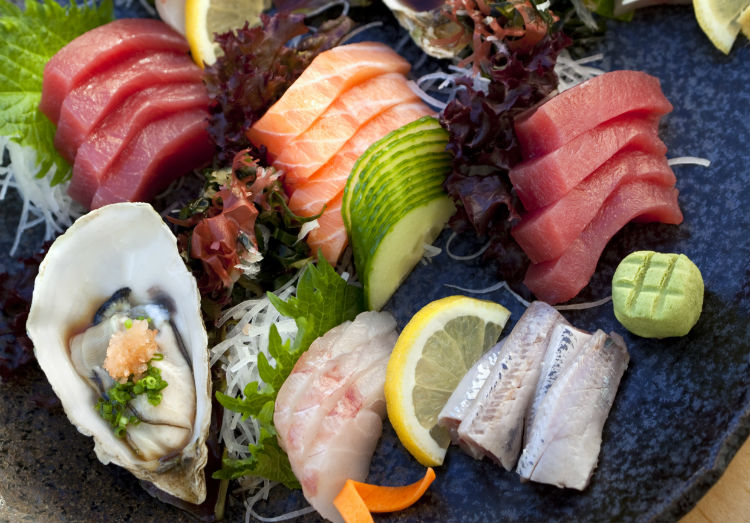At first glance, foods like vegetable sprouts, fish and eggs seem to be healthy food choices. But, depending on how they are prepared, these ingredients may contain bacteria, viruses, parasites or toxins that can cause food-borne illness.
While the digestive symptoms of food poisoning are often miserable, they usually resolve in a matter of hours or days with no lasting consequences for healthy people. However, older individuals and those with compromised immune function can experience serious health setbacks and complications from a bout of food poisoning. Therefore, it is crucial for seniors (and their caregivers) to be aware of what foods pose significant risks and make sure to avoid them.
Ruth Frechman, a registered dietitian and spokesperson for the American Dietetic Association, explains that seniors should avoid some foods that appear healthy, especially those served raw, because of the germs they harbor. “As we age, it gets harder for our bodies to fight off infections, making it easier for us to get sick,” she says.
Sprouts are a prime example. “Consuming broccoli sprouts, alfalfa sprouts, bean sprouts, etc. is like eating a little plant, which provides a great deal of nutritional, digestive and enzymatic benefits,” Frechman says. “However, the warm, humid conditions needed to grow sprouts from seeds are also ideal for bacterial growth. Salmonella, E. coli and other kinds of harmful bacteria can grow to high levels. When the seeds sprout, the bacteria get trapped inside, which can make us very sick.”
While sprouts are powerhouses of nutrition that are generally harmless for healthy individuals to eat, there’s no way to guarantee their safety, even with thorough washing and proper food-handling techniques. Cooking is the only way to kill most dangerous foodborne pathogens, which is why foods like sprouts that are usually served raw or, at most, lightly cooked pose the most risks to older individuals.
Healthy Foods Elders Should Avoid
Frechman says seniors should avoid eating the following foods to reduce their risk of contracting food poisoning.
- Raw eggs
- Soft cheeses like Brie, Camembert and blue-veined varieties
- Raw oysters, clams and mussels
- Unpasteurized milk
- Unpasteurized juice
- Raw or rare beef, including carpaccio and steak tartare
- Sushi and sashimi
- Ceviche
- Foods that contain undercooked eggs (unpasteurized eggnog, Monte Cristo sandwiches, French toast, homemade Caesar salad dressing, Hollandaise sauce, tiramisu and raw cookie dough or cake batter)
Of course, food is a source of enjoyment for many people, so the idea of giving up any of the items above may not be ideal for some. As with many lifestyle and medical decisions, it’s important to carefully weigh the risks and benefits of available options. Helping a senior maintain their quality of life is an important goal for most caregivers but balancing this with a loved one’s health and safety is a difficult responsibility.
If you have any concerns about the risks associated with a senior’s diet, ask their physician for guidance. With a little bit of creativity and research, you may be able to find safer alternatives that your loved one finds equally as enjoyable, like using pasteurized eggs in recipes or opting for cooked varieties of sushi. If they’re still resistant to change, consider at least minimizing their consumption of potentially dangerous foods, and be sure to carefully purchase, transport and prepare these ingredients to lower their risk of falling ill.
